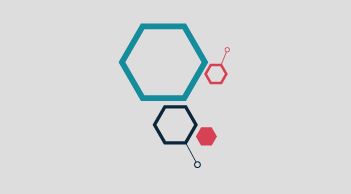-
TrendsHealthcare
-
SectorHealthcare and Pharmaceutical Industry
-
CountriesGlobalMexico
The Sustainable Development Goals are a call from the United Nations to mobilize action and eradicate poverty, protect the planet, and improve the lives and situations of millions of people worldwide.
To achieve results, the participation and coordination of actions are necessary not only from heads of state and governments, but also from many involved parties such as political and intellectual leaders from various sectors, including businesses, the academic and scientific sector, organized civil society, and each individual.
One of the challenges presented in 2019 was to ensure financing, improve its implementation at the national level, and strengthen institutions. Considering these commitments, I will highlight Goal 3, which aims to ensure a healthy life and promote well-being for everyone at all ages.
According to the United Nations, before the pandemic, significant advances were made in health, such as increased life expectancy and reducing some of the most common causes of death associated with infant and maternal mortality. With great satisfaction, it can be mentioned that the increase in life expectancy is largely due to the combination of scientific research and clinical practice, along with the commitment of the medical community to achieve better diagnosis and treatment of diseases, educate about the prevention of harmful health conditions, and the development of vaccines for disease prevention and essential and innovative medications to treat current and emerging diseases.
Public-private collaboration has been key to achieving progress and combating threats to public health. The COVID-19 pandemic was a great example of the value of collaboration and innovation to overcome challenges. However, more efforts are needed to eradicate some infectious diseases, significantly reduce the incidence of chronic diseases, and comprehensively address societal health problems threatening the lives of millions of people and the sustainability of health systems.
It is urgent to refocus health systems with a more preventive than curative vision, aimed at better distribution of human and material resources, increased public investment integrating mechanisms to ensure efficiency, and a review of regulatory paradigms allowing evaluation and adoption of schemes where individuals, civil society organizations, and businesses can contribute through partnerships to address specific public health issues. Additionally, collaborative and transparent public policies need to be designed considering all viewpoints.
Today more than ever, we need healthcare systems that guarantee access, universality, equity, and sustainability. Sustainability should not only be assessed from a financial perspective but also from social and environmental standpoints.
A healthcare system with a value-based model, in which all parties contribute, and with the public investment recommended by the World Health Organization, would undoubtedly achieve greater advancements in the sustainable development agenda and a much healthier and productive society that contributes to economic growth and the overall well-being of society.
Patricia Faci
Corporate Affairs Director / MSD Mexico



